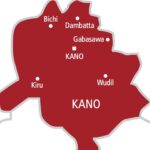By Abdulrahman Abdulraheem
When the All Progressives Congress (APC) presidential candidate, Asiwaju Bola Ahmed Tinubu made the famous ‘Emi Lokan’ (It is my turn) statement in Abeokuta, Ogun state capital, days before the primaries, to stress it’s his turn to serve in the highest office in the land, Nigerians reacted on the basis of their individual sentiments, bias, and emotions.
While the neutrals saw the statement as mere politicking, critics found his sense of entitlement as needless and unpatriotic. His supporters however affirmed his rights to so declare. The overwhelming majority of Nigerians however did not see beyond that day in the sense that the words would contribute to the country’s future vocabulary.
Former President Olusegun Obasanjo was an exception. Months later, he told Tinubu that the comment he made before Ogun delegates added three crucial words to the political lexicon: Emi Lokan, Olule (he crashed) and Eleyi (this one). The words will continue to be deployed in official and unofficial quarters via written and verbal communications.
The commotion about naira scarcity and the fact that citizens have a viable option they are not using is another opportunity to say ‘e-Naira Lokan.’ e-Naira is described as the safest, fastest, cheapest and most convenient option. Therefore, suffering for long hours in banking halls, ATMs and paying exorbitant charges to collect cash from the few Point of Sale (PoS) operators willing to dispense is like going hungry while working and living on a food plantation with plenty of options.
The Nigerian currency has evolved over time. After the era of trade by barter, cowry shells were widely used as a medium of exchange until 1907 when the British West African pound was introduced. This was in use until 1958 when the Nigerian Pound was introduced. The first major currency followed the colonial ordinance of 1880 which introduced the Shillings and Pence as the legal tender currency in British West Africa.
The units of coins managed by the Bank of England were one shilling, one penny, 1/2 penny and 1/10 penny and were distributed by a private bank, the Bank for British West Africa till 1912. From 1912 to 1959, the West African Currency Board (WACB) issued the first set of banknotes and coins in Nigeria, Ghana, Sierra Leone and the Gambia. The highest banknote denomination was one pound, while the one shilling coin was the highest coin denomination.
On 1st July, 1959, the Central Bank of Nigeria (CBN) issued banknotes, while the WACB-issued notes and coins were withdrawn. It was not until 1st July, 1962 that the currency was changed to reflect the country’s republican status. The banknotes which bore the inscription, ’Federation of Nigeria‘ now had ‘Federal Republic of Nigeria,’ inscribed at the top. The notes were again changed in 1968 following the reported misuse of the legal tender during the civil war between 1967 and 1970.
Sequel to the decision by the government to change from the metric to decimal, the name of the Nigerian currency was changed in January, 1973. The major unit of currency which used to be £1 ceased to exist and the one naira which was equivalent to ten shillings became the major unit, while the minor unit was called the kobo, hundred of which made one naira.
On the 11th of February 1977, a new banknote with the value of ₦20 was issued. It was the highest denomination introduced at the time as a result of the growth of the economy, the preference for cash transactions and the need for convenience. It bore the portrait of the late Head of State, General Murtala Ramat Muhammed (1938-1976). The note was issued on the 1st anniversary of his assassination, February 13, 1977. He was declared a national hero on the 1st of October, 1978.
On the 2nd of July, 1979, new currency banknotes of three denominations, namely ₦1, ₦5 and ₦10 were introduced. These notes were of the same size i.e. 151 X 78 mm as the ₦20 note issued on the 11th of February, 1977. In order to facilitate identification, distinctive colours were used for the various denominations.
The notes bore the portraits of three eminent Nigerians, who were declared national heroes also in October 1978. The engravings at the back of the notes reflected various cultural aspects of the country. In April 1984, the colours of all the banknotes in circulation were changed with the exception of the 50 Kobo banknote to arrest the currency trafficking prevalent at the time. In 1991, the 50K and ₦1 were both coined.
In response to the expansion in economic activities and to facilitate an efficient payment system, the ₦100, ₦200, ₦500 and ₦1000 banknotes were introduced in December 1999, November 2000, April 2001 and October 2005 respectively. On 28th February, 2007, as part of further economic reforms, ₦20 was issued for the first time in polymer substrate, while the ₦50, ₦10, ₦5 banknotes as well as 50 kobo and ₦1 coins were reissued in new designs. ₦2 coin was introduced.
On the 30th of September, 2009 the redesigned ₦50, ₦10 and ₦5 banknotes were converted to polymer substrate following the successful performance of the ₦20 (polymer) banknote. Furthermore, to mark Nigeria’s 50th Independence anniversary and 100 years of its existence as a nation, the CBN issued the ₦50 commemorative polymer banknote on the 29th of September, 2010; and the ₦100 commemorative banknote on the 19th of December, 2014.
Naira redesign policy and cash crunch
Aside from the introduction of e-Naira notes and cash withdrawal limit, the major masterstroke in the justifiable drive to move Nigeria into full cashless economy and drive down inflation has been the laudable naira redesign policy which is recording certain unintended consequences. As part of efforts to clean up the economy and save the Naira from free fall in recent years, the CBN introduced new ₦200, ₦500 and ₦1000 notes launched by President Buhari on November 22, 2022.
But recent weeks have been about sorrow, tears and blood owing to the scarcity of both the old and the new naira notes. Banking halls, ATMs and PoS centres have become an eyesore because of the rush and desperation to access cash that is short in supply. People now go to bed hungry; they have money in their accounts but can’t access it. To make matters worse, internet banking has been a disaster. Probably due to too traffic, bank networks are no longer reliable, transfers fail to deliver, leaving people stranded.
The CBN unveiled the e-Naira in October 2021. Launched by President Muhammadu Buhari, it was greeted with skepticism at the initial stage but more Nigerians are showing interest. Rather than being obsessed with unavailable cash and internet banking that is neither consistent nor reliable, this is the best time to fully embrace the e-Naira which eliminates challenges associated with regular banking. The ongoing chaos would have been averted if Nigerians listened to CBN Governor Godwin Emefiele then.
CBN’s Director of Information Technology, Mrs Rakiya Muhammad, in a chat with the Economic Confidential, explained that the e-Naira is a technology that eliminates or minimises intermediaries between two people conducting a transaction.
“In Nigeria, even though we are celebrating the uptake of mobile technology, phones and all that, we do know that only about 20 to 30% of our people, according to statistics, have smartphones which means the rest cannot download the wallet so we partnered with the telecom companies. We have a web wallet on e-Naira website where you can create one.
“After that, you will be able to transfer money, buy data or airtime on any kind of phone. We are working to onboard Airtel and Glo. As soon as they come onboard, you will be able to access e-Naira without a smartphone or connection to the internet. We launched that in Kano sometime in July last year because they have a large population who are largely unbanked, they don’t have BVN.”
The director concurred that the currency scarcity would have been avoided if the majority of Nigerians saw the light and enrolled on e-Naira platform before now. On the safety of banking details, she assures that the transparency in the system makes everything traceable. Other benefits include secure and cheaper diaspora remittance options, and quick transactions.
As regards local payments, Muhammad said users can boycott queues, pay taxes and bills from the comfort of their homes, adding that individuals can monitor their wallet available on the website, check balances and view transaction history with ease. The platform allows the transfer of money to one another through a linked bank account or card.
According to Permanent Secretary, Ministry of Humanitarian Affairs, Disaster Management and Social Development, Dr Nasir Sani-Gwarzo, on CBN’s recommendation, his ministry has enrolled about 1.6 million beneficiaries of its social intervention schemes into the e-Naira platform. To underscore the ease and efficiency, the figure was registered in less than one month!
On the cash crunch in the system, Sani-Gwarzo said: “Nigerians are only complaining about the cashless system because they have not fully embraced the e-Naira but the time will come that everyone will be on it and we will start asking ourselves why didn’t we do this decades earlier?”
Indeed, there is time for everything in life. A time to wake up and a time to sleep; a time to be born and a time to die. Cowries have had their time just after trade by barter. Even manilas, beads, bottles, naira notes, and polymer notes have had their moments. But in this present time, e-Naira Lokan.
Abdulrahman Abdulraheem can be reached via editor@economicconfidential.com

 Join Daily Trust WhatsApp Community For Quick Access To News and Happenings Around You.
Join Daily Trust WhatsApp Community For Quick Access To News and Happenings Around You.


